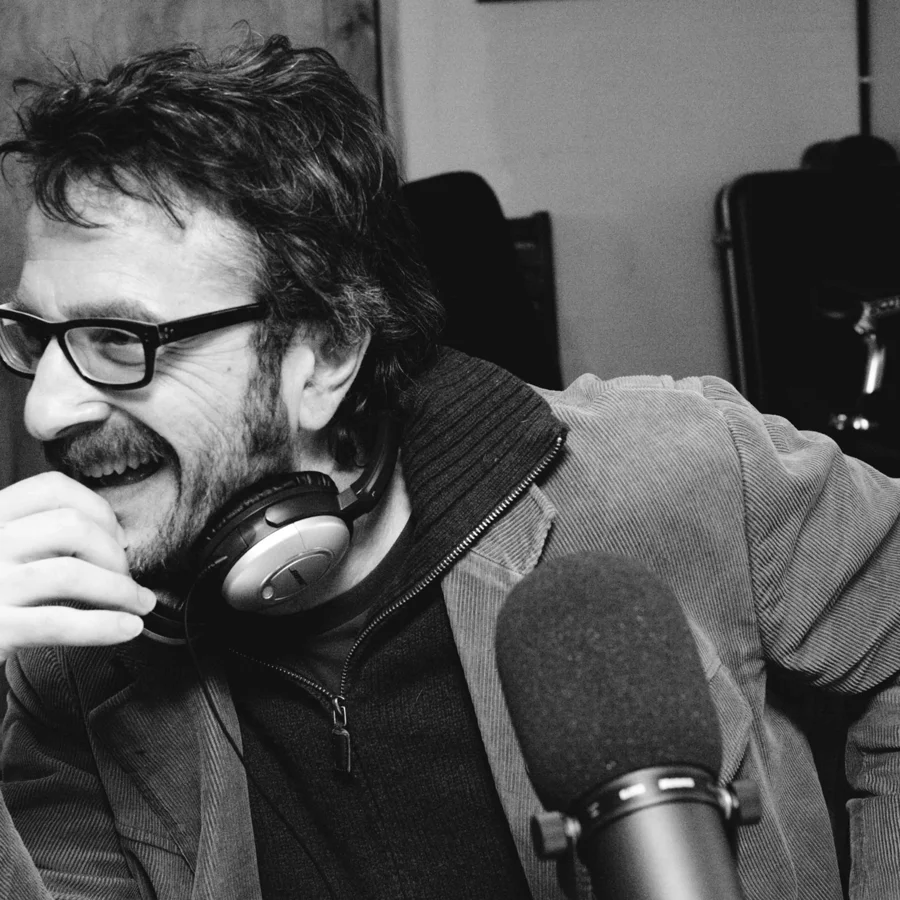Saudi Arabia’s Riyadh Comedy Festival, set to begin this weekend, has sparked significant controversy as the kingdom seeks to improve its image despite ongoing concerns over human rights and free speech. The event boasts a star-studded lineup including Dave Chappelle, Bill Burr, Louis C.K., Aziz Ansari, and Pete Davidson, but some comedians have openly condemned the festival. Marc Maron, among others, has voiced strong criticism, referencing Saudi Arabia’s controversial international actions in his rebuke.
Marc Maron Challenges Fellow Comics Over Festival Participation
Marc Maron took to social media with a sharp critique of performers involved in the Riyadh Comedy Festival, posting a video clip with the caption, Selling out in Riyadh. During the clip, he called attention to Saudi Arabia’s responsibility for 9/11 and the murder of journalist Jamal Khashoggi. Maron questioned,
How do you even promote that?
He sarcastically added,
From the folks that brought you 9/11. Two weeks of laughter in the desert, don’t miss it!
He further condemned the kingdom’s actions, stating,
I mean, the same guy that’s gonna pay them is the same guy that paid that guy to bonesaw Jamal Khashoggi and put him in a fucking suitcase. But don’t let that stop the yucks, it’s gonna be a good time!
Despite his harsh words, Maron admitted his own stance was easier because he was not offered a spot at the festival, saying,
It’s kind of easy for me to take the high road on this one,
and
Easy to maintain your integrity when no one’s offering to buy it out.

Other Comedians Speak Out Against or Reject Participation
Shane Gillis revealed that he had refused a significant sum to perform, a decision he maintained despite an increased offer. On his podcast, he said,
I took a principled stand. You don’t 9/11 your friends.
Similarly, Zach Woods used satire to question the moral choices of comedians accepting the event’s money. Referencing Turki Al-Sheikh, the head of the Entertainment Authority, whose name is also associated with a prison wing, Woods sarcastically remarked,
Now there’s a lot of drips, killjoys, and dweezbazoids, who are saying, ‘Oh, they shouldn’t do comedy over there because it’s like whitewashing a regime that just in June killed a journalist, and killed Jamal Khashoggi, and played a big role in 9/11.’ Shut up! Name one comedian who hasn’t whored themself out to a dictator.
Human Rights Watch has urged performers at the festival to use their platform to demand the release of detained Saudi activists, such as Waleed Abu al-Khair and Manahel al-Otaibi, highlighting the ongoing repression in the kingdom.
Diverse Reactions Among Comedians Regarding Festival Involvement
Comedians have expressed a variety of views about participating in the festival. Stavros Halkias declined to join, calling Saudi Arabia “spooky” during a podcast appearance, while Chris Distefano explained that his decision to perform was influenced by his fiancée encouraging him to accept the money. Tim Dillon openly admitted on his podcast that financial gain was his primary motivation, stating he was paid $375,000 for one show and acknowledged,
Do I have issues with the policies towards freedom of speech? Of course I do, but I believe in my own financial well-being.
Shortly after performing, Dillon said he was fired due to backlash from his own jokes, particularly those that seemed to excuse forced labor in Saudi Arabia. He recalled,
They heard what you said about them having slaves,
and noted, They didn’t like that.
Saudi Arabia’s Broader Strategy of Image Building Through Entertainment and Sports
The Riyadh Comedy Festival is part of Saudi Arabia’s wider campaign to reshape its global reputation, which also includes expansion into international sports such as professional wrestling, football, Formula One, golf, and boxing. These efforts are commonly referred to as “sportswashing” and seek to divert attention from the kingdom’s human rights abuses by promoting a modernized cultural image.
Significance of the Backlash and What Lies Ahead
The public criticism from Marc Maron and others illustrates the deep ethical divide among entertainers regarding participation in events sponsored by regimes accused of severe human rights violations. The debate raises difficult questions about artistic freedom, financial incentives, and responsibility when performing in politically contentious environments. As the Riyadh Comedy Festival unfolds, the spotlight on Saudi Arabia’s human rights record is likely to intensify, placing pressure on performers to either address these concerns publicly or face ongoing scrutiny for engaging with the regime.
